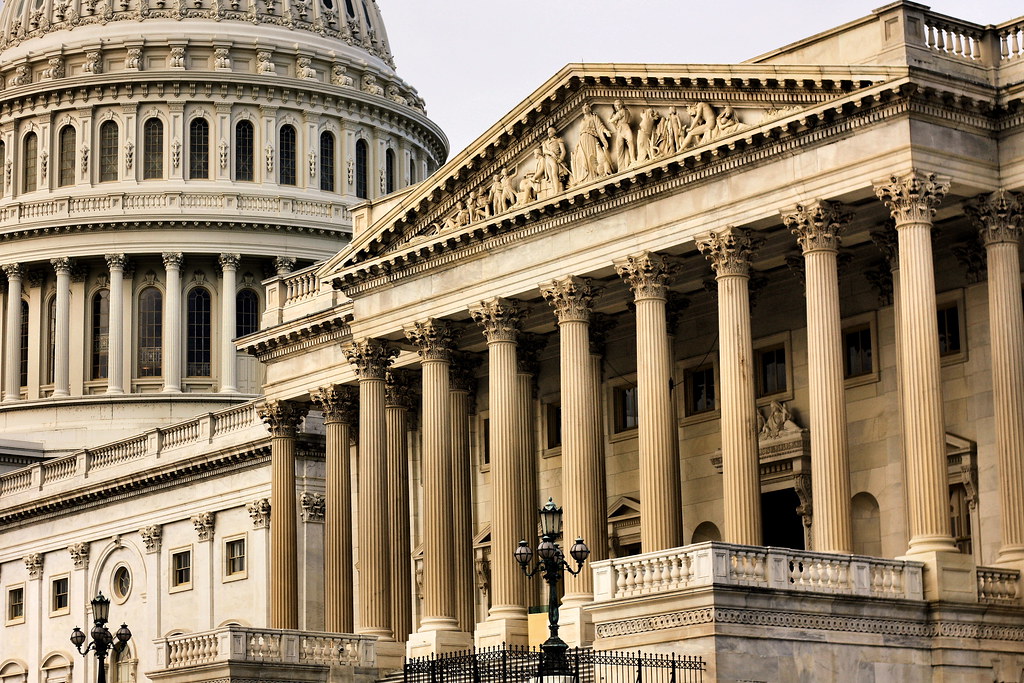In a democracy, if someone wants to wield power, ideally they are forthright and earnest about who they are, what they hope to achieve, and why they think they are best qualified to achieve it. The public deliberates and makes its decision at the ballot box, and whoever wins the battle of ideas wins the people’s consent to govern.
Unfortunately, we don’t live in an ideal democracy, and ambitious people don’t often like to let on exactly what they want all that power for. So when a figure with plain conflicts of interest is in line for a job which could advance their conflicting interests, it falls to the public to clearly state their questions and demand answers — as loudly and repeatedly as necessary.
Lately, fintech-funded individuals like Michael Barr have been rumored for powerful financial regulatory positions, despite the fact that this would leave them in charge of decisions directly affecting the firms they advised. There are plenty of regulators across the federal executive branch whose powers offer opportunities to the fintech sector, including (but not limited to):
- Office of the Comptroller of Currency
- Securities and Exchange Commission
- Federal Reserve
- Commodity Futures Trading Commission (where fintech-linked Chris Brummer is currently a reported front-runner)
- Department of The Treasury
- Consumer Financial Protection Bureau
- Federal Trade Commission
- Department of Justice Civil Division
While the Biden administration has nominated excellent, independent leaders to many of these agencies, there are plenty of powerful, lesser-discussed positions further down the org charts of each agency which could offer handouts to fintech and other industries. If Barr and others are serious about gaining these jobs, they need to also gain the trust and good faith of the public. To that end, here are a few questions which Barr and other fintech-linked nominees should be able to answer during Senate confirmation hearings or other public settings — and conversely, questions on which silence or rhetorical sleight-of-hand would speak volumes.
- Do you now or have you ever had an equity stake in any fintech or cryptocurrency firm, most especially those which you have advised or been employed by? If so, name the firms.
- Do you believe it is likely that any fintech start-ups that compensated you marketed their association with you to prospective investors?
- Have you ever provided policy, regulatory, or strategic advice to a fintech or cryptocurrency firm? If so, how much and how were you compensated, which clients have you advised, and what was the content of your assistance?
- Do you now or have you ever invested personally in a fintech or cryptocurrency firm, or professionally advised investors in a fintech or cryptocurrency firm? If so, for how long did you have this financial or advisory relationship, and are the activities of the firms in which you or your associates invested relevant to the position for which you are now nominated?
- Do you now or have you ever owned cryptocurrency? Have you ever been compensated or gifted cryptocurrency, most especially cryptocurrency produced by a firm you advised or were employed by?
- Do you now or have you ever advised or been employed by a non-profit organization substantially funded by a fintech or cryptocurrency firm, such as a think tank or advocacy organization? If so, were you compensated, including via cryptocurrency? Has this non-profit organization produced work relevant to the position for which you are now nominated? When did your employment by this organization end, and when did the organization stop marketing their association with you?
- Have you ever conducted fundraising on behalf of an academic employer by requesting funding from a fintech corporation or for-profit fintech funded organization?
- Do you now or have you ever conducted research funded by a fintech or cryptocurrency firm, or investors in fintech or cryptocurrency firms? If so, was such research relevant to the position for which you are now nominated? Were you compensated, including via cryptocurrency, by the firm(s) or investor(s)?
- If you have ever served in a professional fundraising role, have you raised funds from a fintech or cryptocurrency firm, or its major executives and/or financial backers?
- If you have answered “Yes” to any of the above questions, in what ways do you expect to govern or regulate on issues relevant to the firms with which you have a past association? Do you predict that these firms will materially benefit from your governance decisions?
- Will you commit now to not pursue nor accept employment, compensation, or other professional benefit from firms within the fintech or cryptocurrency industries after you leave this role? Regardless of your answer to the previous question, what do you predict you shall pursue professionally after your time in government service?
- The OCC just granted its first Special Purpose National Bank Charter to a fintech firm last year, despite Harvard Law School’s Forum on Corporate Governance concluding these charters benefit fintech “investors such as private equity firms” who want to bank “without the burdens of regulation.” Would you grant additional Special Purpose charters to fintech firms who seek to avoid state banking regulations?
- Do you think an association with a former financial regulator helps a nascent firm convince investors that it is legitimate and law-abiding?
PHOTO: “United States Capitol” by Phil Roeder is licensed under Creative Commons.

